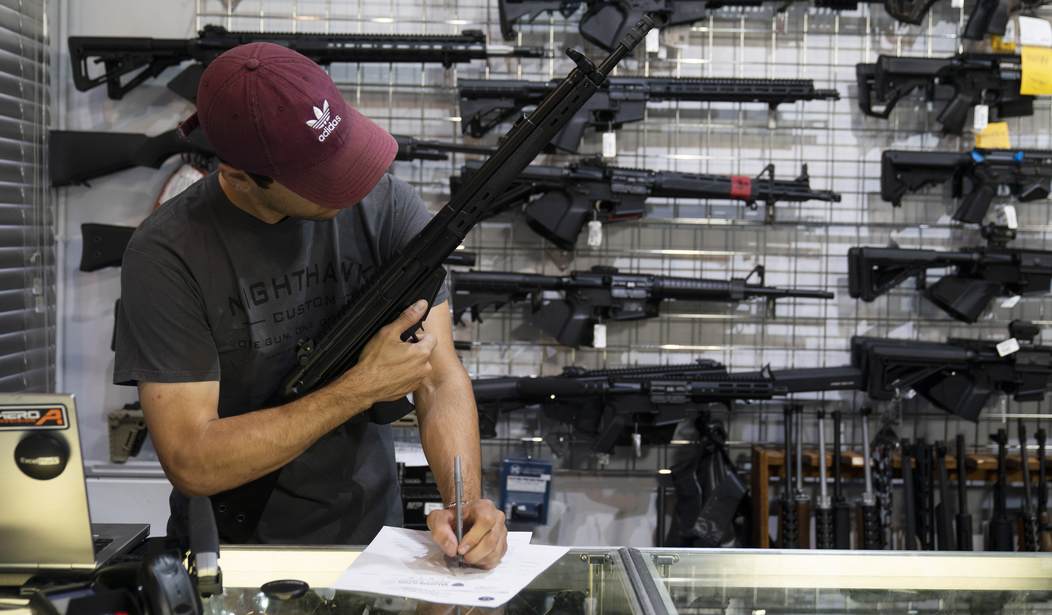The Second Amendment preserves the right to keep and bear arms. A central premise of gun control, in contrast, is to keep guns out of as many hands as humanly possible, except for the elite who can always find a way to navigate the byzantine regulations created to accomplish that task.
In Colorado, it looks like they just passed something that isn't really gun control. It's just a tax, but it's insidiously evil, and we need to discuss why.
Now, let's remember what I literally said just a couple of sentences ago. Gun control isn't about eliminating guns. Not really. They may want what will amount to an effective ban, but that's never going to happen. Not completely. Even in countries without a Second Amendment, someone can always lawfully get a firearm. The key thing is to make it so difficult and expensive that regular folks can't get one.
The elites are never going to try to overturn the social or political order because they're the beneficiaries of that order.
So, what does this have to do with Colorado? Let's get into that.
Anew state tax on guns and ammunition could hurt people who want to protect themselves in Colorado, some residents said, with one county official telling Fox News Digital the move is meant to "turn law-abiding gun owners into criminals" and "reduce gun ownership."
Colorado imposed a 6.5% excise tax on gun sales in addition to pre-existing federal taxes, the latest in a slew of gun control measures that have passed this year. Proposition KK, the first such measure to be established through a ballot referendum, garnered 54.4% of votes on Nov. 5.
...
Guns are already taxed at 10 to 11% on a federal level. Rickert and Jandro said that, in addition to the federal tax, they must charge an 8% sales tax in the city of Wheat Ridge.
"This bill was intended to kill small gun stores – it creates an effective tax rate of about 25%," Rickert said. "That's a poll tax, a sin tax – you can't exercise your constitutional rights as a gun owner."
The tax will apply to all sales by licensed firearms dealers, manufacturers and ammunition vendors operating within Colorado – but Jandro and Rickert said that the tax will disproportionately impact businesses like theirs.
"[Big sporting goods chains] have a team of lawyers. It's easier to put us out of business, because we don't have the deep pockets that big box stores do," Jandro said.
With an effective tax rate of 25 percent, you're looking at a tax that will keep a lot of people from ever being able to afford to own a firearm.
In other words, while this was sold as a way to fund things, it's really about keeping guns out of reach for many law-abiding citizens. Of course, criminals aren't going to blink at this, but it's not about crime. It's about making it harder for regular people to get a firearm.
Keep in mind that guns aren't exactly cheap.
Even the cheapest self-defense handgun out there, something like a Hi-Point, it still retails for a couple hundred bucks. If you're barely covering expenses, that's a lot of money. Now, add another 25 percent on top of that, and it gets a little further out of reach.
Now, this is a poll tax--a tax levied specifically on those who would exercise a basic right--and is therefore unconstitutional, particularly under the Bruen decision's history, text, and tradition test, but that means it'll have to be challenged. I don't think it'll survive that challenge, myself, that's not really the point.
It's not the point because gun control advocates will just try to find another way to make guns so expensive that no one can afford them. When this fails, look for them to find ways to tax gun manufacturers or stores to such a degree that they have to pass the expense on to consumers. Then it'll drive the costs up in other ways, but since they're not taxing people directly, they're skirting the prohibitions on poll taxes.
See, if you make it so no one can afford a gun, you don't need to control guns. You don't need laws to regulate what people can't have.
It's a threat to the Second Amendment in part because it'll come at gun rights from the sides. It doesn't stop you from owning a gun, they'll just make it so difficult that it's practically impossible.
Look at machine guns, for example. While you can technically own one in most places, they're so expensive that many of us will never really have the opportunity to own one.
That's the point, and that's the problem.








